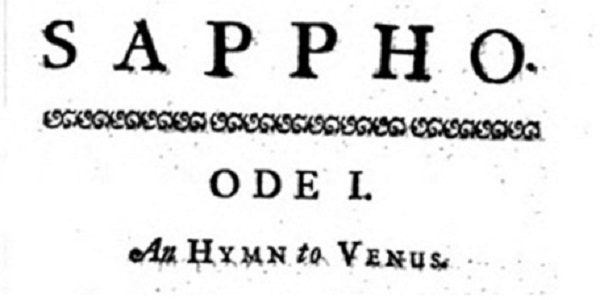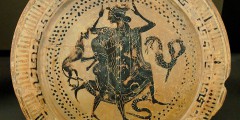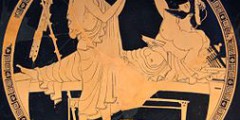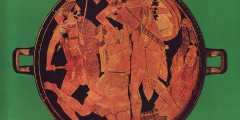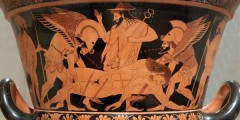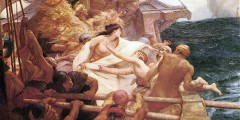Sappho’s Beloved
March 5, 2015
Doctoral student Harriet Lander introduces a case-study from her work on the history of translations of Sappho. Solon, according to Aelian, asked his nephew to teach him one of Sappho’s poems, ‘So that I may learn it and then die’. This desire to know and understand Sappho’s lyrics has been a pervasive attitude from antiquity …
Thinking about Thinking about Ancient Greek Religion (2)
August 31, 2014
In January 2014, the Ancient Religions and Cognition (ARCog) project held its second workshop: on Transmission. Esther Eidinow gives an overview of the meeting, during which participants explored the theme of religious transmission using cognitive theorizing to think about ancient evidence, and vice versa. You can find out more about the project and the workshop, …
Beginnings and Endings (77)
June 12, 2014
And another thing… A few weeks ago I posted about beginnings and endings in ancient literature, and called the post ‘Beginnings and endings (1)’. So I must go on… Sometimes the question ‘how can an ancient poem end?’ matters. One striking ending in a modern poem is Keats’ sonnet ‘On first looking into Chapman’s Homer’; …
Beginnings and Endings (1)
May 19, 2014
Helen’s last post has combined with a research paper given last week in our research seminar to make me think about beginnings and endings in Greek literature: appropriately enough, since the questions is in part ‘when to stop?’, I shall post about this in two parts. If epic means ‘a long poem about history’, this …
Sarpedon: Looking at the Past
January 23, 2014
The pot in the picture is a big (about 45 cm tall) krater (mixing bowl for wine), manufactured in Athens in the late sixth century BC. We know the name of the potter (Euxitheos) and the painter (Euphronios), because both are named on the pot (one signature reads ‘Euxitheos made me’ and another ‘Euphronios painted …
They might be Argonauts
December 19, 2013
One of the great things about working on Classics, and especially Classical Reception, is the enormous variety of material with which you can work. My current major research project is a history of the myth of Jason and the Argonauts. Thinking about how passing references to the Argonauts form the way we think about them, …

